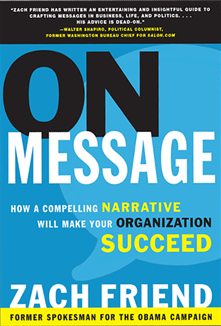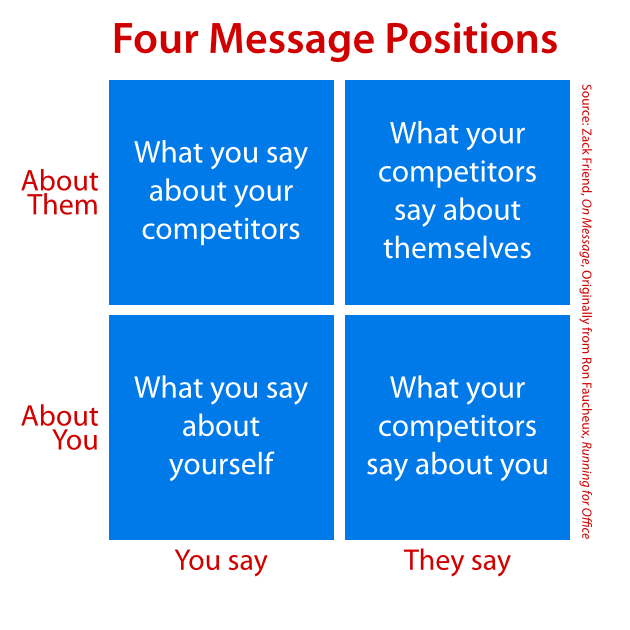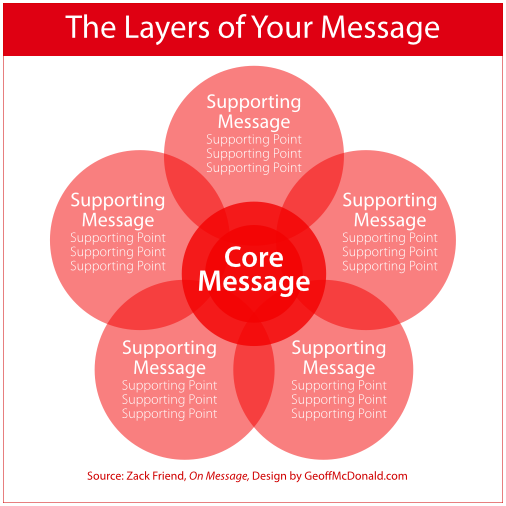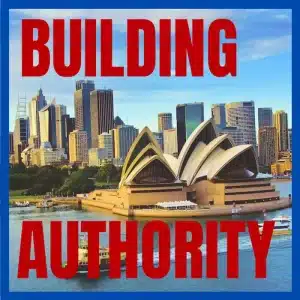
Walk Your Talk
Given I’m a designer of messages and information products, I’m willing to admit I’m a hard marker when it comes to judging the design and layout of books.
The old proverb ‘don’t judge a book by it’s cover’ applies to this book by Zach Friend. On Message is much better than it’s lack lustre cover and interior pages. They’re not bad they’re just not consistent with the powerful message within the book.
One of Zach’s compelling ideas is that words alone have less impact than words plus an emotionally appealing image. And, unfortunately, this book cover, and even the interior lack any compelling images. (I’ve added my simple version of what I would have done at the top of this page – a collection of master messages…)
I suspect this is a case of lazy publishing. And, this is one of the reasons that I will only self-publish my books. I want the content of my books and their appearance to be congruent!
In this case, this lack lustre design is going to cost this book the attention it deserves. This is unfortunate as this book is one of the best I’ve read on message design.
[Tweet “One of the best books I’ve read on message design – On message by @zachfriend55”]
A Policy Perspective

Zach Friend presents some highly useful frameworks and provides plenty of examples (corporate, social and political) to showcase how to apply it to your situation. And, that’s what makes this book so valuable – it’s fresh, structured and practical.
Some Gems
Here are a couple of big tips from Zach Friend’s On Message:
- Narrative: The narrative is the spine that provides the underlying consistency and strength to your message. Tip: To create a powerful narrative include the three elements of a great story: an enemy to conquer, a struggle to overcome and a resolution that satisfies.
- Message: the simple 2X2 matrix for designing your message is super useful. The key is that it extends your narrative by defining the viewpoints of your competitor or enemy. The companion frame of your core message with four supporting messages then makes it possible to stay on track whilst presenting or responding to any audience.
- Branding: I really liked the simple distinction between marketing a product/service and branding a company through the example of Toyota. This makes sense! Tip: Focus on building a narrative around your business for the long term.
- Images: This section highlights the need for both images and words. Tip: Source emotional images to support your words.
- Framing: We choose frames to position our message. And, the highlight here is a clear and practical strategy for responding to other people’s frames. Tip: Don’t repeat or fight the incoming frame. Instead, simply respond with your counter-frame.
- Social Media: This chapter includes some strategic insights into how to be effective in the flood of social media content. In particular, how a deluge of low-level dribble can be countered by a few well chosen snippets of personal information. Tip: For social cut-through share some personal and emotional content.
RAP
Buy this book if sharing your message is crucial to your career or business. And, dare I say it… I think that’s most of us! Use On Message as your guidebook for creating your overall narrative as the structure for all your communications.






